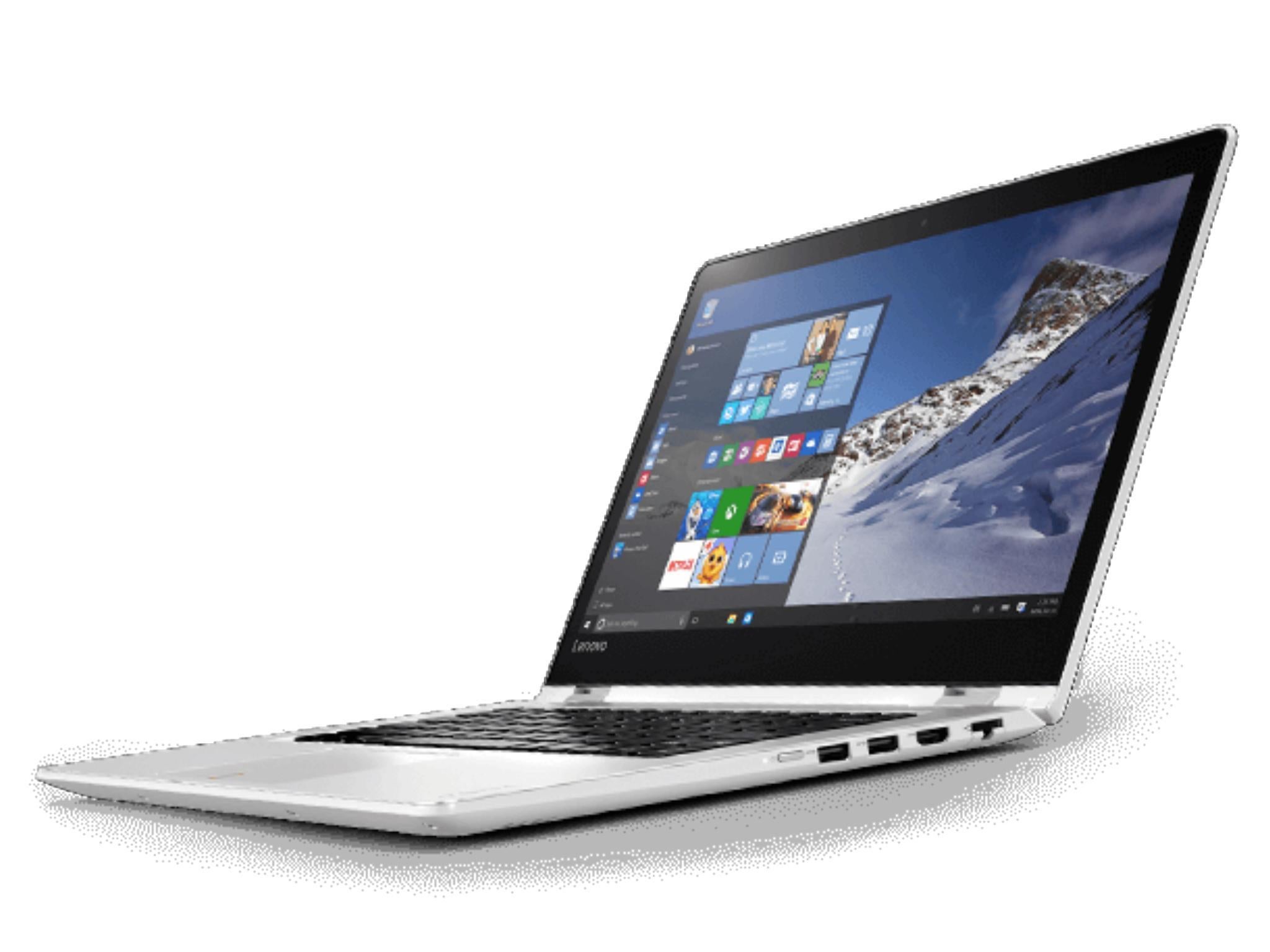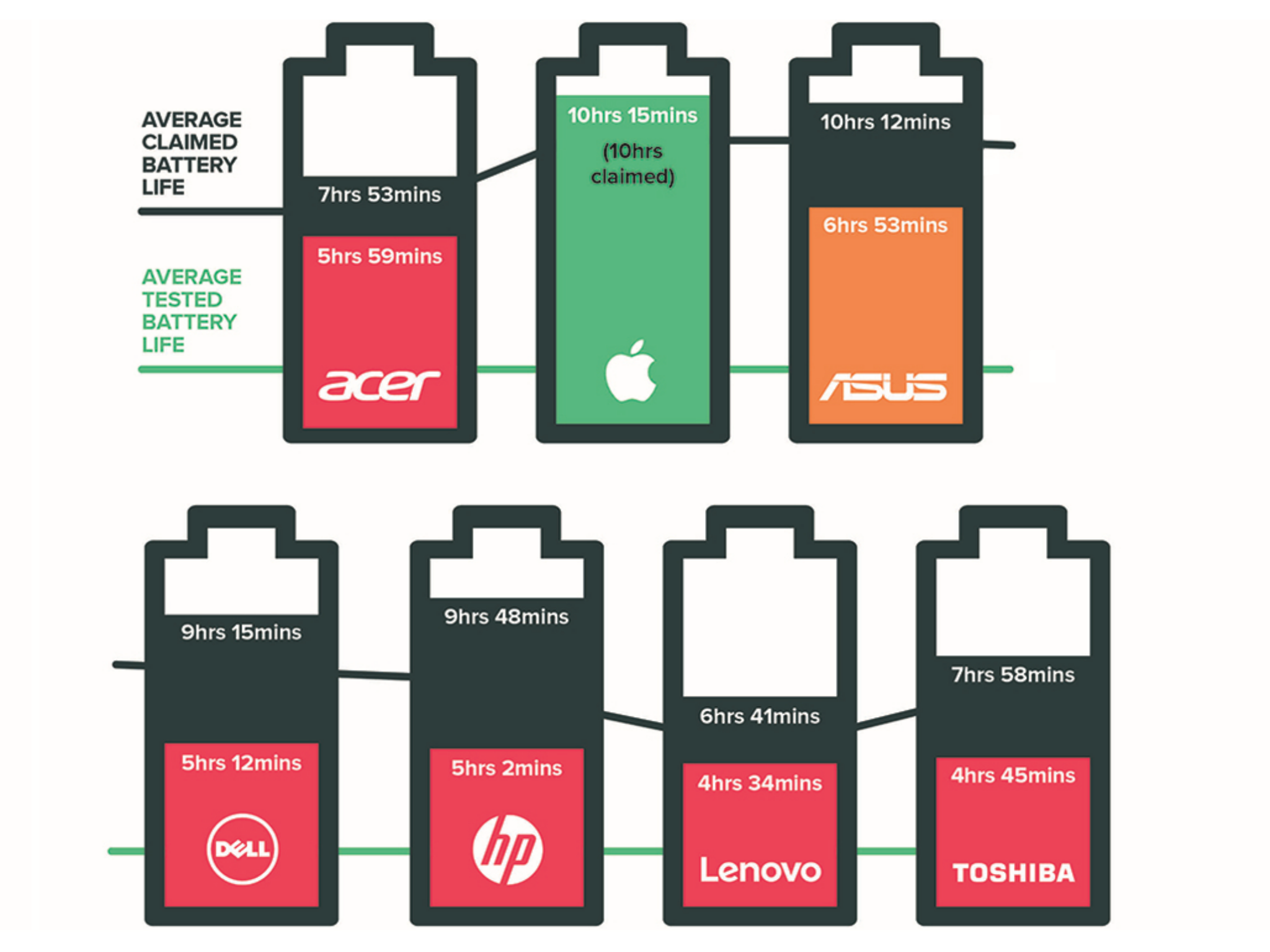The Independent's journalism is supported by our readers. When you purchase through links on our site, we may earn commission.
Laptop battery life being greatly exaggerated by companies, tests reveal
'We have to wonder how their own estimates are arrived at'

Your support helps us to tell the story
From reproductive rights to climate change to Big Tech, The Independent is on the ground when the story is developing. Whether it's investigating the financials of Elon Musk's pro-Trump PAC or producing our latest documentary, 'The A Word', which shines a light on the American women fighting for reproductive rights, we know how important it is to parse out the facts from the messaging.
At such a critical moment in US history, we need reporters on the ground. Your donation allows us to keep sending journalists to speak to both sides of the story.
The Independent is trusted by Americans across the entire political spectrum. And unlike many other quality news outlets, we choose not to lock Americans out of our reporting and analysis with paywalls. We believe quality journalism should be available to everyone, paid for by those who can afford it.
Your support makes all the difference.Manufacturers are claiming their laptops have double the battery life they actually do, new tests have revealed.
Almost all manufacturers have been found to be overstating their battery claims, according to Which?, which tested 67 laptop models over the past year, from the likes of Acer, Apple, Asus, Dell, HP, Lenovo and Toshiba.
Only Apple came out of the tests with any credit, with its MacBook Pro meeting and in some cases even exceeding the company’s claimed figures.
Which? says its tests involved actively browsing the web over Wi-Fi and draining the whole battery several times over while performing a range of tasks.

While Lenovo claims its Yoga 510 offers up to five hours of battery life, Which? says it only delivered two hours and seven minutes in tests.
The Acer E15, which is claimed to offer six hours, was good for just two hours and 56 minutes in Which?’s tests.
However, the MacBook Pro 13 kept running for 12 hours in tests, despite Apple giving it a claimed battery life figure of 10 hours.
“As the figures we arrived at are often drastically different to the manufacturer claims, we have to wonder how their own estimates are arrived at,” Which? said.
Manufacturers tend to base battery life estimates on testing undertaken in optimum conditions, rather than real-world use.
Dell, which was found to be one of the worst offenders, has defended its claims, telling Which?, “It’s difficult to give a specific battery life expectation that will directly correlate to all customer usage behaviours because every individual uses their PC differently – it’s similar to how different people driving the same car will get different gas mileage depending on how they drive.”
HP, which was also found to be greatly exaggerating battery life, said its tests use ”real life scripts” and run on “real applications like Microsoft Office”, adding that specifications, such as screen resolution, impact results.
Join our commenting forum
Join thought-provoking conversations, follow other Independent readers and see their replies
Comments